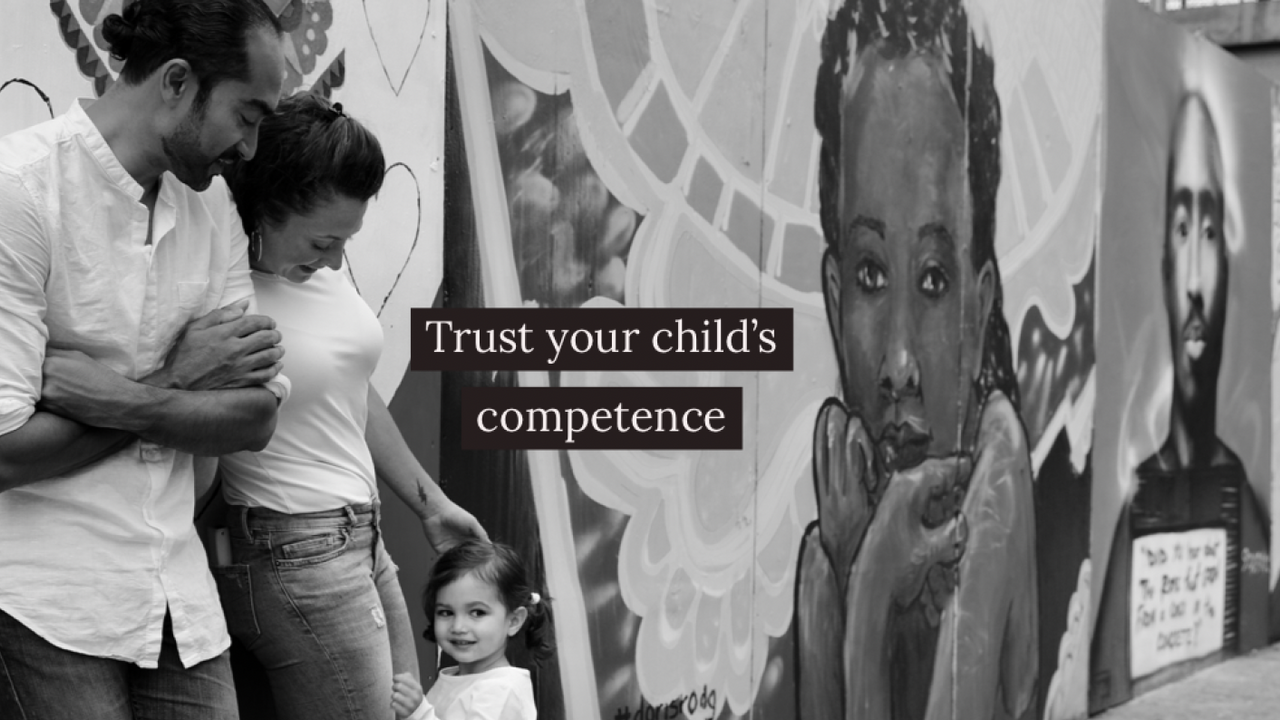What is RIE?
Feb 19, 2021
Lucky for me, before my daughter was born, I was introduced to RIE® parenting by our family pediatrician. After reading numerous books on the subject, I felt extremely thankful to have a workable framework guided by sound principles that provide a point of reference for me to operate as a new mom. I loved the theory behind RIE®, the practical ways to apply it and most of all, the incredible result of having a deeply trusting, mutually respectful and thoroughly enjoyable relationship with my daughter.
RIE®, also known as Resources for Infant Educarers, is a conscious and respectful approach to raising children. Started by infant specialist Magda Gerber in 1978, RIE® is based on the premise that infants are competent self-initiators, explorers and problem solvers of their own development within the context of a secure, caring and respectful relationship. RIE® emphasizes respect for the individual while providing essential nurturing, protection and boundaries from the primary caregiver, usually being the mother or father.
“RIE helps adults raise children who are competent, confident, curious, attentive, exploring, cooperative, secure, peaceful, focused, self-initiating, resourceful, involved, inner-directed, aware and interested.”
Sounds awesome, doesn’t it?
But before I go into the main tenants of RIE®, let me be clear about what RIE® isn’t. This approach is not prescriptive, diagnostic or some magic formula that will create perfect kids. RIE® isn’t a rigid set of rules that make us function robotically or dogmatically. It encourages participation over perfection, is simple but not always easy and ultimately prioritizes intimacy over efficiency.
Here’s the truth. Kids don’t come with a guidebook. Oftentimes, new parents focus on pregnancy and birth without giving much thought to how they will raise their children. Most of us are overworked, stressed, distracted, addicted to technology and we lack the community and village mentality to share the challenges of parenthood. Plus, most of us have not done the emotional work on ourselves and can be majorly triggered by our children, especially when they express big emotions. (Tantrums, anyone?) Which is precisely why RIE® can offer an incredible way to connect with our kids under these challenging circumstances.
Plus, as if the above wasn’t reason enough, the relationship our child has with us, the parents, literally shapes and wires the brain and becomes the blueprint for ALL FUTURE RELATIONSHIPS. Therefore, RIE® in its respectful, conscious approach, allows children to develop a trusting and lifelong attachment and sets the stage for the child to have those kinds of relationships with others. It helps form the basis on each child’s personality as well as their outlook and viewpoint on the world.
To me, that is a tremendous responsibility and also a deep honor and privilege. I am thankful to have had RIE® guide me through my daughter’s earliest days to help me set the tone for how I wanted to treat, love and respect her. And I love having it now as we move through the toddler years with big emotions and opinions!
With that being said, here are the basic principles of RIE®. Each one will eventually become a blog post because they can be unpacked and digested in so many different ways. But to create somewhat of a starting point, here goes….
RIE® Educaring BASIC Principles:
- Respect – This is the cornerstone and main tenant, the literal foundation this whole approach is built upon. We respect the child for his/her competence, moods, emotions (positive + negative), developmental stage, self-expression, need for communication, style, choices and tempo. We also learn to respect ourselves as parents.
- Authenticity – We see the genuine truth of our child and accept her for who she is rather than who we want or project her to be. Through RIE®, we learn to be comfortable with baby’s authentic and wide repertoire of self-expression, disposition and abilities.
- Trust in Child’s competence – Children do what they can do and what they are ready for. The most important aspect to remember is that it is not the result or milestone that matters, it is the journey to get there. When following their inner agenda, children cultivate a joy of learning, a habit of self-reliance, satisfaction from success, problem solving skills, resiliency to overcome difficulty and the ability to do something independently through patience and persistence.
- Sensitive observation – The RIE approach, based in trusting the infant’s competence, is grounded in observation. When we observe, we attune to the infant’s communication and needs while exploring our own triggers, emotions, projections and fears. It helps us identify our innate inclinations to respond, motivate, help and assist and determine if and when an intervention is needed.
- Care taking activities – Caregiving (feeding, bathing, dressing, diapering) in the RIE® approach IS the curriculum AND the relationship. It provides an incredible opportunity to connect and a beautiful way to create intimacy and mutual enjoyment. Babies get refueled when being really attended to and are more likely to be able to explore their environment independently. Care taking is not done TO the baby but rather WITH the baby.
- Safe, challenging and predictable environment – As infants learn to move, they need an environment that is physically safe, emotionally nurturing and cognitively stimulating. The more predictable it is, the more learning and growth is facilitated. It is important to create a space that encourages rather than prevents babies’ natural innate desire to move.
- Uninterrupted play – Children need time for undisrupted play to help facilitate inner emotional contentment, quiet, attentive concentration and enjoyment of alone time. We only offer enough support (and only if truly needed) for the child to gain self-mastery. We as caregivers, are attentive and responsive but not intrusive remembering that intervening always means disrupting but but not interrupting doesn’t mean ignoring.
- Consistency – As parents and primary caregivers, we decide and define our boundaries and limits. As a basis of early discipline, we must remain clear and consistent with the expectations we hold for our children. We do not have to tolerate behavior we do not like or want but it is essential to set the lines before becoming upset or resentful.
Though not listed as a defining RIE® principle, I would like to add:
- Acknowledgement – When we acknowledge our children, we allow them to feel understood, seen and validated. This does not mean we need to pacify, entertain, distract or fix our children’s emotional states nor do we deny them either. We possess enough maturity to hold the space for our children’s big emotions so that they can move through them and calm much quicker. This helps our kids build emotional intelligence and comfort around feelings.
As we learn about the RIE® principles and work to implement and embody this practice, it is important to remember that this is an ongoing learning experience. It begins with out own inner awareness and unfolds and evolves over time. We, as parents, get better by weathering the storm and being in the trenches. So if we can know our triggers, our boundaries and our lines, we will be better equipped to parent more effectively and with a greater capacity for kindness.
For more information about RIE, check out their website here.





